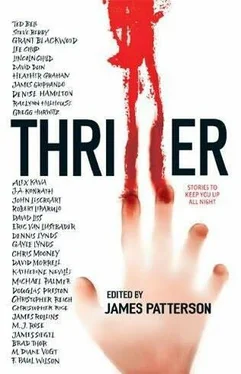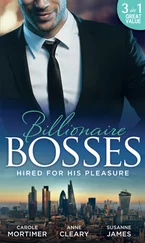Adams knew he must exercise caution in his dealings here on the continent. He'd been recalled once by Congress, from a previous mission, due to complaints by the French minister, Ver-gennes, about his comportment in diplomatic circles. But Adams had always suspected it was Franklin himself who'd gotten him recalled. For the doctor, who'd lived much of his life abroad and had soaked up the sins of each land, could no longer abide Yankee honesty and directness.
Adams could only pray that, if not he, then at least Thomas Jefferson would be able to talk some sense into the good doctor, regarding the critical treaties that they three were to forge with England and France. And there was something more.
There was a fly in the molasses when it came to this blighted French mission. Adams suspected it had been there for quite some time: there was a spy-perhaps even a double agent-working all this while in Passy, right under the nose of Benjamin Franklin. As God himself knew, that residence, Le Valentinois, was fraught with dire possibilities. Not only Chaumont, its arms-dealer owner, was suspect. But also Franklin's own twenty-two-year-old grandson who lived there, Temple Franklin, a youth whose father William (Ben's bastard son) was himself a Royalist exiled from America.
In John Adams's view, however-of the elitist aristocrats, Royalist sympathizers and nouveau riche the doctor always sucked into his orb in that retreat at Passy-the most dangerous of all was Mme Helvetius. And for very good reason.
The Sieure Helvetius, her late husband, had made his fortune by royal sinecure, hadn't he? He was one of the "Farmers General," those who'd been given exclusive rights, monopolies, one might say, over all sale and purchase of goods produced or imported by France. The same people who still held sway, today, over American trade with France and her dominions.
As for La Helvetius, she'd even established a secret society to help her circle of vipers maintain control-a club whose members had the audacity to call themselves liberals, Freemasons!- when half its founders came from the nobility of France!
As Adams patted the flanks of his steaming horse and prepared to make toward Passy to attend his morning meeting, he smiled at a private thought: He imagined his wife, a preacher's daughter, meeting La Helvetius for the first time.
It might happen today, mightn't it? After all, today was a Tuesday.
10:00 a.m.
Passy, France
Benjamin Franklin plucked his knight from the chessboard and set it down beside his opponent's rook. He tapped his finger on the table for attention.
"If you take that knight with your castle, my friend, it's mate in three," he announced to Thomas Jefferson, who'd glanced across the board in surprise. "But if you don't take my knight," Franklin added with a wry grin, "then I'm afraid it will still be mate in five."
"My dear Jefferson," said John Adams, standing at the wall of windows overlooking the vast, manicured gardens of Le Valenti-nois, "that's the third game you've lost in a row. If your skills at negotiating treaties-for which Congress sent us to France, after all-are no better than your skills at chess, we may as well pack up our portmanteaus and go home."
"Nonsense," said Franklin, putting the chess pieces back in order on the board. "Jefferson hasn't had the practice I've had. When I play chess, I brook no distractions. Why, I've played a full evening, whilst Mme Brillon, my erstwhile amour, sat in a state of deshabille, soaking in her bath!"
Franklin laughed uproariously, then he saw Jefferson rubbing his unpowdered head of thick hair with both hands.
"Too much mental stimulation for one morning, I'm afraid, and not enough accomplishment," Jefferson said, adding apologetically, "I seem to feel one of my migraines coming on."
"Willow bark," said Franklin. "It contains a pain-killing ingredient specific to headaches. I never disturb the servants this early, but I'll ring for them to find Bancroft, the secretary of our embassy-high time you met-and he shall make you a willow tisane. The chap's a medicinal genius," Franklin assured Jefferson. "Worked on a plantation in Guiana. He's patented all sorts of textile dyes made from barks and tropical plants. I sponsored his election, years ago, to the Royal Society in London-he's been our covert British agent ever since."
"But how do you know you can trust the fellow?" asked Adams. "Some say Edward Bancroft's a war speculator, only out to profit himself. If he takes our money, he may do the same with the French or British. Should he be privy to communiques from Congress? And take notes of our private councils?"
"My dear Adams-" Franklin was already pulling the bell cord, as if shrugging off such concerns "-everyone in France is a spy of some kind. You'll find that a few things have changed since your last foray to this continent. For one, there's no war going on, upon which one might speculate-either financially or philosophically. We keep eyes on the British only to make sure they won't begin one! For another, here at Le Valentinois, we live life so openly and blamelessly that there is really nothing to spy upon!"
No sooner had Franklin released the bell cord than the door to the outer hall popped open. There stood Edward Bancroft, splendidly outfitted in lacy jabot, satin breeches and powdered wig-dressed, as always, for a fancy ball. Adams shot a wicked glance toward Franklin, who ignored it.
"Dash me," said Franklin with his same wry smile. "It seems the walls have ears. My dear Bancroft, we were just speaking of you!"
"I must possess better powers than Professor Mesmer," said Bancroft, returning the smile. "Only a moment ago, whilst in the small salon, I had the intuitive feeling I was wanted here in this room. Now I find you-uncustomarily dressed at this hour-and locked away with some colleagues. By all appearances, you three gents are already working up a storm of intrigue before your secretary's arrival."
"Nothing of the sort," Franklin assured him. "We were playing chess. May I present Mr. Jefferson-lately arrived from America?" Bancroft took Jefferson's proffered hand as Franklin added, "And, of course, Adams here is not unknown to you-though his wife and daughter, who've just set foot on these shores, will be joining us to dine."
"I've had the pleasure of their acquaintance moments ago," Bancroft told him.
"Yes," explained Adams. "My family wanted to arrive early. John Quincy had promised to take the doctor's little grandson, Benny, for a ride in Mr. Jefferson's trap."
"As we've so many young folk, my dear Bancroft," said Franklin, "you might ask the servants for an earlier meal than our usual two o'clock repast. Oh, and while you're at it, a willow bark tisane for Mr. Jefferson."
The instant John Adams was sure that Bancroft was out of earshot, he struck out again: "Do you not find it odd that your secretary was lurking at the door, just when his name came up in conversation?" he demanded of Franklin.
"Our secretary," Franklin corrected him. "He is paid by the mission. And I don't find it strange, when I was just ringing to find him myself-"
"Good Lord!" cried Jefferson, peering out the library's French windows. "There is a barnyard animal eating your costly roses, and the wench who's astride him clearly can't manage the beast!"
The two men went to the windows. There, at the center of the jewel-like garden, a middle-aged woman sat astride an obdurate white mule, yanking at the reins. When this got her nowhere, she swung her leg over the saddle in apparent exasperation, dismounted like a man, and still grasping the reins forcefully, she uprooted a bunch of flowers from a nearby garden bed and shoved them into the mule's muzzle. The beast, instantly diverted by the fresh buds, took a healthy mouthful.
Franklin smiled a strange, private smile.
Читать дальше












